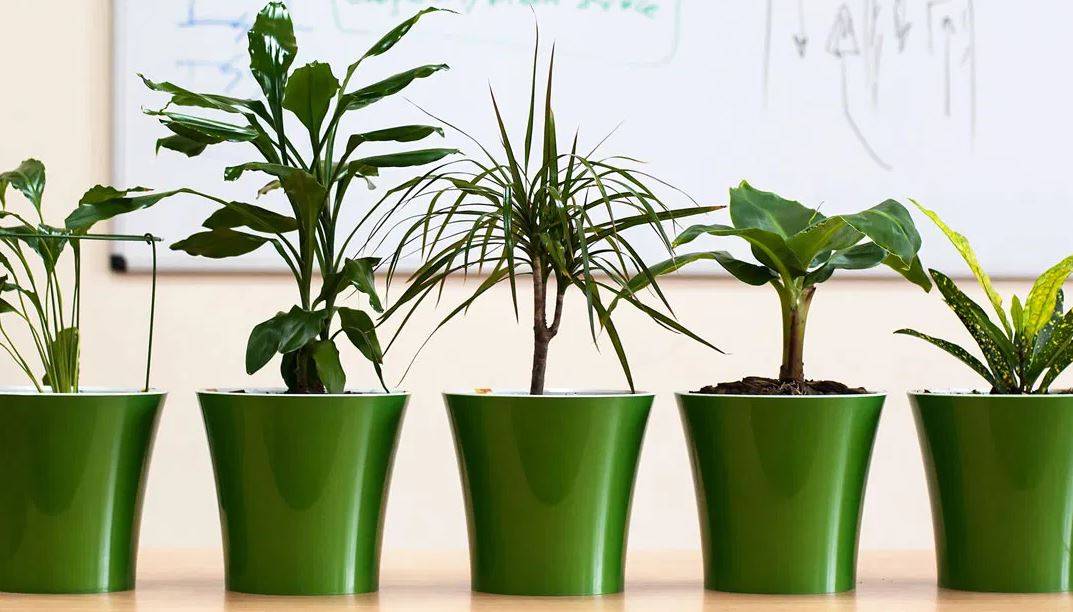
As we all know that Indoor plants have been grown for centuries as they have many aesthetic advantages. However, it is unfair to tag or limit plants as purely decor items. They are a treasure trove of many health benefits, both for you and your home.
Nature has been a constant source of fascination and wonder for us and we have spent ages unravelling the mysteries and what we have discovered is just the tip of the iceberg. The secret of nature is the wall that science is still trying to scale. Let’s discuss about some useful plants.
7 Plants for Wellness:
Below are some wellness plants that you should grow in your home:
1. Areca Palm:
This plant will not only turn you home into an instant coastal getaway but also removes a majority of indoor pollutant gases. NASA ranks areca palm as one of the best air purifiers for indoor spaces. It also lessens the possibility of skin irritation, cancer, and asthma linked to formaldehyde pollution. It would also be an excellent addition to your bedroom to enhance the quality of your sleeping pattern.
2. Fern:
It is one of the oldest plants on the planet, the ferns are well known for their air purifying and humidifying qualities. They work efficiently against formaldehyde, xylene, and toluene that are found very commonly in all homes. These toxins are the cause several health issues such as headaches, breathing issues, and also growth of cancerous cells. Ferns are a great choice for homes with kids and pets, as they are non-toxic and make for magnificent hanging plants.
3. Holy Basil:
From seeds to leaf extracts, every part of the Holy Basil is filled with healing ingredients. Polpularly known in India as Tulsi, almost every home is required to have it as per traditions. Its essential oil is famous to completely stop the growth of staph bacteria (MRSA) and E.coli. It helps fight bacterial infection, decreases cold and flu symptoms, improves gastrointestinal health and respiratory issues, promotes healthy skin, and so much more.
4. The spider plant and the snake plant:
Though it has no relation to the reptile and insect kingdom, these plants are one of the best air purifiers you can have in your home. Well known for removing a wide range of airborne toxins, they are extremely easy to maintain. The snake plant is very helpful in filtering pollutants emerging from manufactured goods and cleaning products that increase the chances of cancer. While, spider plants are excellent at trapping particulate matter (dust, mould, and smoke), they are one of the most effective eliminators of benzenes that cause cancer, impact blood health, and so on. Both these plants produce oxygen at night.
5. ZZ Plant:
This excellent low-care indoor plant is well known for absorbing toxins that cause the sick building syndrome; a collection of symptoms that include headache, dizziness, respiratory problems, allergies, asthma, and other issues connected to chronic exposure to indoor air pollutants. This plant requires minimal water, light, and care while performing its best to improve indoor environment.
6. Rubber Plant:
This plant is famed for its leathery ornamental leaves, but its air purifying qualities are often forgotten. One of the best air-purifiers for a range of indoor air-pollutants, especially formaldehyde that causes many respiratory and skin issues and is also carcinogenic. With proper attention and care a rubber plant can grow up to 7 to 10 feet.
7. Philodendron:
It has many family members and no one is lesser than the other. They are tough and at the same time beautiful and lush. They are excellent at filtering out a number of air toxins that cause major damage to our health. It also enhances the level of the indoor oxygen saturation due to its fast metabolism.











